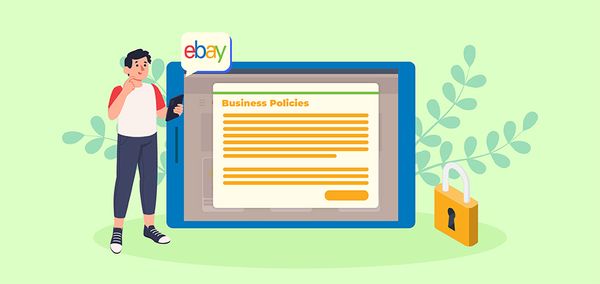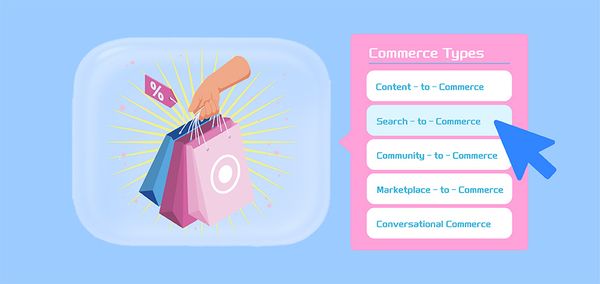A Guide to Ecommerce Forecasting And Budgeting

E-commerce has recently become a popular business model for entrepreneurs and established businesses. With the increase in online shopping, it's crucial to have a well-planned budget and forecast for your e-commerce business to blossom.
A well-planned budget and forecast can help you determine how much money you need to properly run different aspects of your e-commerce business, such as marketing, website development, and inventory management. In this article, we will provide a well-detailed guide to e-commerce budgeting and forecasting.
Ecommerce Forecasting Basics
Forecasting means predicting how many sales you will make within a time frame. Forecasting is usually done by looking at past sales records. We can't predict the future, so we rely on historical data and market trends to make an educated assumption.
Preparing to scale your ecommerce business requires practical e-commerce forecasting and budgeting knowledge. The first step in creating an e-commerce budget and forecast is to define your business goals. Determine what you want to achieve, such as increasing sales, expanding your product line, or improving customer relations.
Having a written plan helps you determine what your main priorities are. Your goals act as a milestone guide, and you can always go back to reevaluate when necessary and assess your progress. Once you have your objectives, you can create a budget and make predictions around them. Business decisions aren't meant to be made hastily. It's essential to keep it as detailed and specific as possible. This helps you ensure that you get the best value for your business.
Sales Forecast
One of the critical elements of e-commerce budgeting and forecasting is creating a sales forecast. This involves estimating the revenue you expect to generate over a specific period, such as a month, quarter, or year.
When creating a sales forecast, it's essential to be realistic and conservative. Overestimating sales can lead to overspending and financial strain, while underestimating sales can lead to missed opportunities and stunted growth.
| Get Started Now to Grow Your Online Business with the Best AliExpress Dropshipping Tool - DSers! |
Analyzing your historical sales data to understand revenue trends, seasonality, and customer behavior is essential. These analyses guide your decision on how much to budget for different expenses and create a realistic forecast. Similarly, if your product offerings are highly seasonal, you may need to adjust your forecast to reflect the expected changes in demand.
Forecasting gives you an idea of what revenue you are expected to make from a sales period. By meeting the targets, you can make bigger plans and expand your business. However, if you miss your mark, it would be a starting point to help you reevaluate your strategy.
Creating a budget and forecast is only the first step in e-commerce financial management. It's important to regularly monitor your forecast to ensure that you stay on track and make any necessary adjustments.
Ecommerce Budget Basics
Budgeting is the process of determining how much money you will spend during a sales period. Usually, it's an estimate that is generally fine-tuned. Budget planning would include both cash coming in and money leaving the business. The budget shows how much is planned to be spent over some time. This can be a monthly budget or an annual budget.
Allocate Your Budget
Once you know what your expenses are, you will be able to allocate your budget accordingly. Determine how much money you can give towards each business area, such as marketing, website development, and inventory management. You should prioritize your spending based on your business goals. Allocating your budget helps you monitor when your money is going. You could achieve all your objectives without leaving any other parts of the business to suffer. For example, if your target market is highly competitive, you may need to allocate more budget towards marketing and advertising to stand out.
When budgeting for expenses, it's essential to track your costs. Fixed costs remain constant. Fixed cost includes rent, salaries, and website hosting fees. Variable costs, on the other hand, are expenses that change based on the volume of sales, such as shipping and packaging costs.
To create an adequate budget, start by estimating your fixed costs and then allocate the remaining funds towards variable expenses based on your sales forecast. This will help you stay within the limits of your budget and reduce overspending on non-relevant things.
In addition to internal factors such as sales and expenses, you should consider external factors impacting your budget. This includes changes in the economy, shifts in consumer behavior, and new industry regulations. You would have to include all these details in your budget. This will act as a failsafe if factors beyond your control affect your business. For example, if you account for the inflation rate or government taxes, you wouldn't have to search for extra money when the need for them arises.
Track Your Expenses
The next step is to track your expenses. This includes all the costs of running your e-commerce business, including web hosting, inventory, marketing, and shipping. You can make use of various accounting software to track and help categorize your expenses. Doing this enables you to track your expenses more effectively.
Tracking your expenses helps you monitor where your money is being spent. By following your costs, you can determine what you need to cut back on and how to save money. It also helps you know what aspects of your business need more funding.
Expense records are helpful when calculating profit and loss. Having these accurate records is handy when you want to conduct quarterly reviews.
Manage Your Cash Flow
Cash flow management is one critical part of e-commerce budgeting and forecasting that should not be overlooked. Cash flow refers to the amount of money paid through sales and capital and the amount going out through expenses over a specific time. Effective cash flow management involves balancing your incoming and outgoing funds to ensure you have enough cash to cover your expenses.
Start by creating a cash flow statement to manage your cash flow effectively. This statement should list your incoming and outgoing funds, including sales revenue, expenses, loans, capital, and debt.
Review And Adjust Your Budget
Your e-commerce budget and forecast should be a living document you review and adjust regularly. As your business evolves, you may need to change your budget and forecast to reflect new opportunities and challenges you have encountered. Moreover, market trends may require you to constantly react to an external factor, which would be reflected in the budget.
It's important to monitor your performance. As you execute your budget, it is crucial to monitor your performance regularly. This will assist in identifying areas of the business that are taking up more or less money than was initially budgeted.
As you gather more data about your e-commerce business, you may need to adjust your sales forecast and budget accordingly. This is particularly important if unexpected challenges or opportunities impact your revenue or expenses.
It's also important to monitor market conditions and business model changes that may impact your budget and forecast. For example, if you're launching a new product line, you may need to adjust your projections to account for the additional expenses associated with product development and marketing.
To monitor your budget and forecast, regularly review your sales data, expenses, and cash flow. Look for discrepancies between your actual sales and costs and your forecasted figures, and adjust your budget and forecast accordingly.
Importance of Budgeting & Forecasting
Budgeting Allows You to Plan for Events Properly
It will enable you to develop many scenarios that may occur within a fiscal year, and you can comfortably plan around all of them. This prevents you from getting caught unaware when certain situations arise. For example, if you have budgeted for an increase in taxes by government agencies, you would not have to start searching for the money when they come around.
Budgeting Helps You Keep Proper Records
When you create a budget, you become accountable to it. When the fiscal year ends, you would have to see if you were within the budget or if you overspent. This would require calculating the money the business handled within that time frame. You need to keep receipts and sales invoices, which would be part of the items you need to check when reviewing your budget.
Forecasting Helps You Monitor Market Trends
When you try to predict the market, depending on the season or customer, forecasting gives you an insight into the customer's mind. For example, during cold periods, people would purchase more sweaters. Indicators like this help you plan how to stock up and what the best products are to sell at different times of the year.
Forecasting Helps You Prepare for Business Opportunities
If you can present accurate and well-documented records to your investors, you can take advantage of specific opportunities that will significantly benefit your business. This would include getting more funds for investment and creating wider profit margins.
Conclusion
Businesses should use both budgeting and forecasting as crucial financial instruments. Both of them help you develop because they demonstrate how to complete your objectives.
Both forecasting and budgeting should be your primary concerns, as they help you maximize profit margins and identify business opportunities. The simplest way to make sure you are on the correct track is to use accounting software that aids in forecasting and budgeting.













 Company
Company
 Why Choose DSers
Why Choose DSers
 Blog
Blog
 Help Center
Help Center




 Live Chat
Live Chat